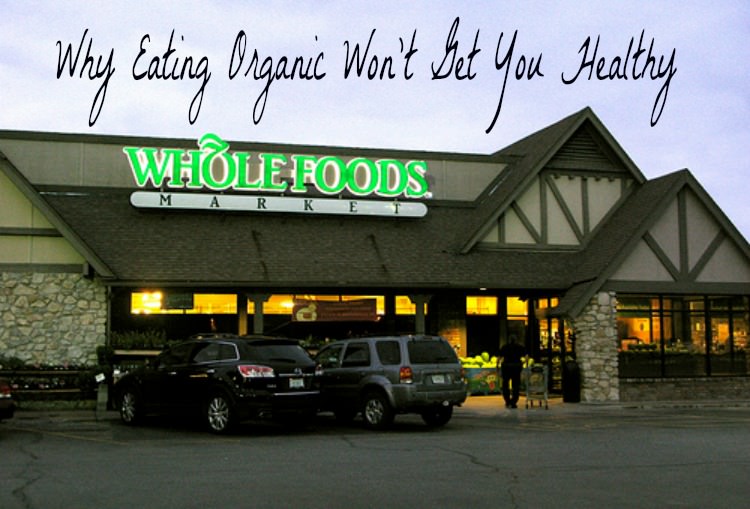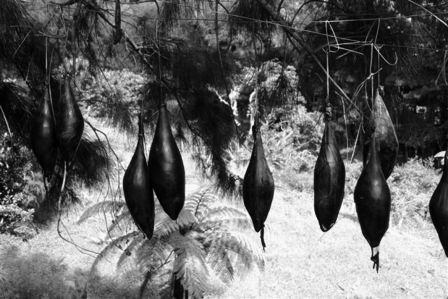
High five!
You’ve made some big changes in your family’s diet recently and are really focusing on eating organic. You’ve stopped buying boxed cereal and other processed snacks at the grocery store and are making homemade snacks and treats with wholesome ingredients instead. You’re even sprouting or soaking nuts and seeds and even your legumes and grains!
You’ve joined an organic fruit and veggie co-op and made the switch to grassfed locally produced meats. You’ve even taken the wise step of incorporating raw grassfed milk into your family’s diet.
While all these changes are wonderful and beneficial compared with how you’ve been eating, I’ve got some tough news for you.
These changes alone are not going to get you healthy.
Eating organic is not the way to health shocking as it may sound!
Gulp.
How can this be, you ask? Your diet is now light years ahead of where it was. How can this organic, whole foods diet not result in vibrant health?
Let me tell you a little story ….
The Telling Tale of the South Sea Islanders
The first Europeans to visit the South Sea Islands in the 1700’s were Captain Cook and his crew. Tahiti was truly a paradise with beautiful people whose frequent smiles revealed perfectly straight, pearly white teeth.
Dr. Weston A. Price found the same blissful environment nearly 200 years later when he arrived with his wife to study these happy, healthy people. Dr. Price noted that the bone structure of the South Sea Islanders was the most perfect of any of the 14 isolated traditional cultures he studied during his travels around the world in the 1920’s and 1930’s which he documented in the amazing book Nutrition and Physical Degeneration.
The traditional diet of the South Sea Islanders was high fat, consisting of seafood and pork with coconut the most important plant based staple. Tropical fruits and other plants were also consumed as there were plenty available in such a temperate and ideal growing climate.
The environment and water were, of course, pristine and food was abundant.
Wouldn’t such an organic, whole foods diet be enough for health?
No, it was not.
The South Sea Islanders knew from observation and perhaps instinct that their clean, whole mixed diet was not enough to maintain their own health or to produce healthy babies and children.
The Sacred Food the South Sea Islanders Could Not Do Without

Despite having plenty of whole, nutrient dense foods available during all times of the year, the South Sea Islanders risked their lives over and over again to hunt sharks.
Once a shark was caught and brought to shore, the liver was removed and put inside the shark’s stomach which was then hung on a tree to ferment.
The oil that came out of the shark liver as it fermented provided a plethora of fat soluble vitamins A, D, and K2 to the South Sea Islander diet that was the critical missing link for vibrant health. This oil was given to growing children and young adults who were about to get married and also to pregnant women. Such oil would have been critical to maintaining health into advanced age as well.
Dr. Price knew from research that the level of fat soluble activators in the South Sea Islander diet was about 10 times higher than the Americans of his day … and processed, devitalized foods had not even arrived in full force yet!
Fat Soluble Vitamins More Important Than Eating Organic
The story of the South Sea Islanders illustrates the critical nature of the fat soluble vitamins in the diet. Without them, no matter how pure, whole and organic a diet may be, health will not be maintained nor healthy children easily produced.
The fat soluble activators A, D, and K2 supercharge mineral absorption into the body tissues and enhance the health and function of every organ system.
Fortunately, fermented cod liver oil and fermented skate liver oil are available today that are very similar to the fermented shark liver oil consumed by the South Sea Islanders.
Please note that the typical brand name fish or krill oil and even cod liver oils on the market are highly processed, industrialized, rancid, deodorized oils that should be avoided. Only fermented cod and skate liver oil is processed with no heat as practiced by traditional cultures.
I have been taking these types of oils for many years and would never consider my whole foods diet complete without them. Why reinvent the wheel and experiment with the latest and greatest silver bullet supplements that seem to change every few months when traditional cultures such as the South Sea Islanders already knew what it took to have healthy babies and stay vibrantly healthy well into old age?
Where to Source Fermented Fish Liver Oils
Please refer to my Resources page for a list of companies that offer clean, purified fermented fish liver oils to provide your whole foods diet with the critical fat soluble activators A, D, and K2.
What to Do if You are Allergic to Fish
If fermented cod or skate liver oil aren’t possible for you due to a seafood allergy, note that you can obtain fat soluble vitamins in other foods valued by other Traditional cultures such as raw, grassfed butter (must be deep yellow to orange in color – sources), fish eggs (many can tolerate fish eggs even with a seafood allergy), emu oil from emus eating their native diet (sources), deep orange yolks from pastured hens, and liver from land based animals.
Sarah, The Healthy Home Economist
Source: Nutrition and Physical Degeneration, Dr. Weston A. Price DDS








In Sweden we have surströmming(sour Herring) fermented Herring that comes from Norrland.
Hi Sarah, I am wondering what is the benefit or harm to eating beef that is not grass fed. I live in El Salvador and it is almost impossible to find beef that has been raised on pure grazing. I don’t know whether to limit what I buy in the grocery store or not and whether it is still worth making butter from these cows. Also, I can get the pastured chickens here and there, though most of them have been fed corn (non-GMO) along with what they scrape up on their own, but it is few and far between. I make broth and eat chicken from where I can get it fresh, but it has been given feed I am sure. I know how to eat the right stuff in the States, but when it isn’t available, what do you recommend? How much is harmful or beneficial? I would hate to avoid it completely, but I don’t know.
Sounds good. I never knew shark livers can be eaten.
The title could be better. What’s Sarah’s definition of “healthy”? People have this conception planted in their minds of what “healthy” is. It usually fits the definition of non- or low-fat, low or no cholesterol, low or no sugar and low or no fat. Organic is none of those. Organic is based around ‘low or no’ pesticides.
The people mentioned in this article are eating a largely organic diet consisting of typically (or hopefully) non-polluted food sources from nature. Fatty and oily foods that nourished the body and provided essentials.
I think Sarah has her wires crossed from comparing the mass produced and packaged “organic” foods which can be found at Whole Foods and what people can haul in from the ocean or pick off a tree. And no, I’m not referring to mass ocean fishing or large land-based farms. These are small groups of humans who collect things at a subsistence level.
Perhaps the title could be revised to something like, “Shopping at Whole Foods not as a healthy as catching and eating a wild food.”
I have to agree with the persons saying that this article is misleading and not well done. I love Sarah’s posts and read them as they give very informative articles, but honestly, when I read this one, I had the impression is, well going organic and eating nutrient-dense food is not worth it if you not take FCLO. I was very disapointed. And also, why can you make this kind of claim, Sarah ? You do not have any study or proof to this claim. I understand that what Price observed was that fat-soluble vitamins are very important to diet, but does not taking FCLO on a nutriten-dense diet mean you won’t be as healthy ? So, yes, I think this articles falls under the standard and not well written and very misleading. You can suggest, but not make a claim without having somehting to back it up. Please be careful in the future.
I don’t necessarily agree or disagree with your recommendation- but I always come back to the same question when considering the argument for any kind of fish liver oil, and that is, what did healthy human beings do for these nutrients before they had access to fermented fish livers?
Who do you suppose was the first person to stick a bunch of fish organs in a bladder, stomach or barrel and conclude that the resulting slimy, (likely foul smelling) mixture was something you’d want to eat?
I think it’s pretty easy to see the evolution of fermenting or sprouting grains and other foods as these processes were likely to occur naturally in humid storage conditions, but I’m simply not sold on the fish oils. It doesn’t make any sense at all.
Several of the people Price studied had no source of fish oil in their diets and yet were extremely strong and healthy.
In ancient times, Romans (at least the upper-class ones) ate a fermented fish sauce with every meal. The Legions were fed fish sauce also, as it was believed to increase their endurance for long marches, and make them immune to diseases they might encounter in foreign lands. Primary documents from the day attest that they thought it was delicious. I do not know if the fermented fish sauce included liver or liver oil, but I can say that primary sources say it smelled awful while being prepared.
I’m going to say upfront that I have not read the entire article. But, being a farmer, I can tell you that an organically raised cow or chicken CAN be only marginally better than it’s commercial cousin (this isn’t always the case). Using this logic on humans I think should apply. I read a study, I wish I could remember the source, that stated if you cook it yourself you’ll be healthier than eating processed organic food. Eating bad foods would be more self limiting because they are generally more time consuming to prepare. FCLO is a good safety net to begin with until you can curtail the bad habits and find good sources for good, well raised food.